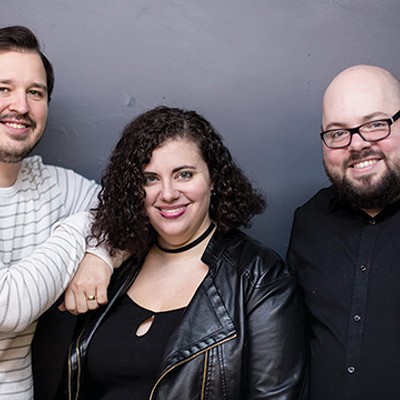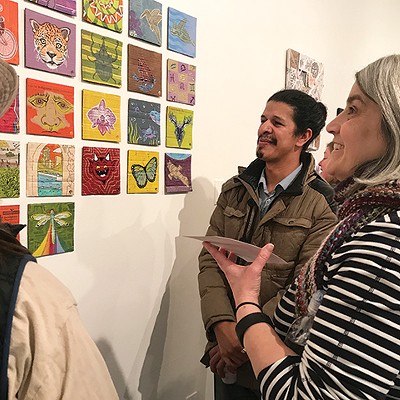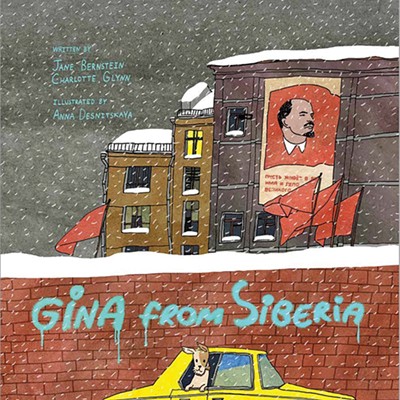Why would Jim Pitulski -- or anyone else -- base a music business in Pittsburgh? The superficiality of La-La Land or the sophistication of the Big Apple aren't for everyone.
Talent agents need to schmooze with execs, but booking agents can set up concerts from any desk with a phone and a computer. And at least two enterprising individuals are doing that from Pittsburgh.
Robin Troup runs the Squirrel Hill-based agency Ixtlan Artists. The name might be hard to pronounce, but it reflects Troup's interest in ethnic and traditional-folk artists, such as Irish icon Tommy Sands, klezmer staples Brave Old World, and Lakota Nation cultural ambassador Kevin Locke.
Troup's story is as complex as a folkloric saga. He was consulting on subscription campaigns for orchestras around the country, and landed at the Pittsburgh Symphony alongside Les Getchell and Marty Ashby, who went on to found the Manchester Craftsmen's Guild's jazz concert series and Grammy-winning record label.
Getchell worked for a North Side folk-music agency run by Joan Sherman, but kept in touch with Troup. When Sherman retired, Troup jumped at the chance to buy the agency and immerse himself in the folk scene. In 2003 he changed the agency's name, part of a broader transition: "I changed the direction to world music but kept the folk."
For some artists, Ixtlan plans tours as far afield as Turkey and Japan; for others, the agency also does management and promotions. "I produced an album for Kevin Locke, so I'm involved in his record deals," Troup says. Ixtlan also conducts folk-music and cultural-diversity workshops for schools and universities.
With Ashby and Getchell, Troup has even initiated a traditional-music series at MCG, which kicked off last month. Although MCG is primarily a jazz venue, Troup enthuses that it is "ideal for traditional music. They are technically as good as it gets. We're going to come out of that with a live CD and possibly a DVD."
Unlike Troup, Dave Romano, who runs Covert Booking and NBT PR, is a homegrown punk rocker. Romano went to North Hills High School, playing in the bands 800 Brigade and McCarthy Commission. Eventually he began putting on his own shows, inviting national touring bands. "Adam Social [of pittpunk.com] and I started Killstar Productions. We did shows for bands like Piebald, Thursday, Converge and Digger."
Local heroes Anti-Flag noted Romano's well-organized events and hired him to promote its Pittsburgh shows. Soon, Romano was doing in-house booking and publicity for the nascent A-F Records label. "The only band on the label who had a name was Anti-Flag, and they already had an agent," he recalls. "So I had to make something of unknown bands."
Soon, Romano was getting calls from bands and labels searching for touring help. His Covert Booking got its big break in 2004, when ska kings Mustard Plug came calling. Romano split his time between booking and publicity for A-F until the end of 2005, when he started his own publicity company, NBT PR.
But Anti-Flag's army wasn't finished with its loyal soldier. The band had just signed to RCA and needed someone to do a grassroots PR campaign. Since then, major labels have hired Romano to push Rise Against, New Found Glory, and The Receiving End of Sirens.
"There's a valid complaint that once a band signs to a major, they ignore the underground and stop doing interviews in smaller zines," says Romano. Bands aren't ignoring their roots, he explains; the problem is that labels rarely "work the release at that level."
Last May, Covert expanded to the West Coast, uniting with Dead Kennedys tour manager Landon Gale-George, who books punk legends such as Angry Samoans and Dr. Know.
Eventually, Romano says, he'll have to relocate: Even in the Internet age, face-to-face contact is key. "Right now I'm making a living doing this in Pittsburgh because I've been rooted here for so long," he says. Still, "It's easier to say, 'Let's meet for lunch' when you're in L.A."
Troup doesn't have that dilemma. "I used to live in New York City, and I'm periodically tempted to go back there because of all the music connections," he says. "But I live in Squirrel Hill and I like it. ... The quality of life here for the money that it costs, that's a no-brainer. And in traditional music, you don't need the same kind of connections as in pop.
"Pittsburgh's just where we live -- we think in terms of world music and world tours."


















